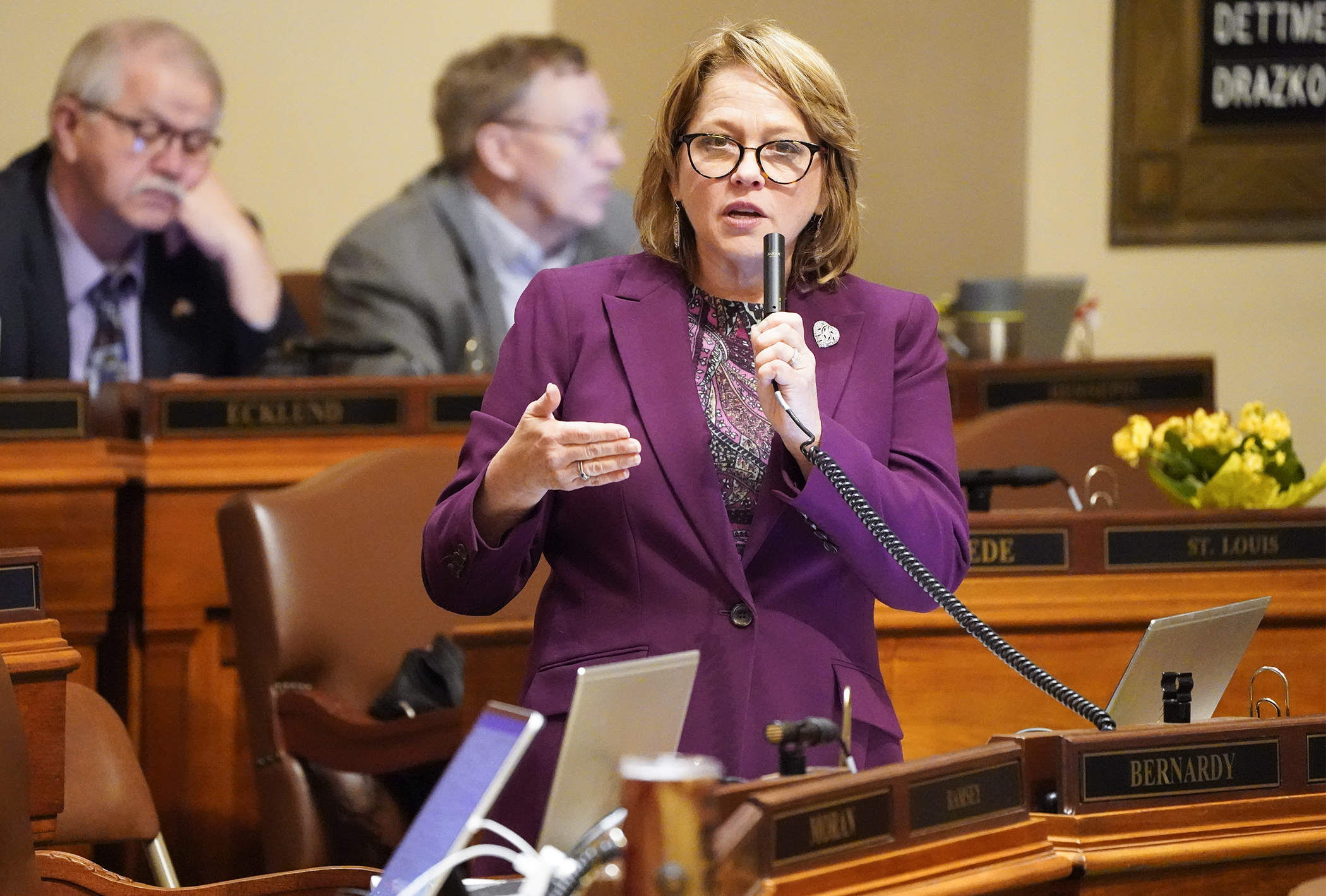House gives omnibus higher education bill a passing grade

Making postsecondary education affordable and available to all Minnesotans is the bedrock of the omnibus higher education finance and policy bill.
Sponsored by Rep. Connie Bernardy (DFL-New Brighton), the House passed HF3872, as amended, 69-59 Friday. It now goes to the Senate where Sen. David Tomassoni (I-Chisholm) is the sponsor.
The bill would expand higher education opportunities for low- and middle-income Minnesotans with grants, and help students with intellectual disabilities access college with the creation of an Inclusive Higher Education Technical Assistance Center and a special grant program.
Bernardy said the bill is a $250 million investment in higher education that is student-centered, focusing on worry brought forth by collegians.
“We listened to their hopes, their concerns and their dreams. And, now we have a chance to deliver solutions they need to thrive in our economy.”
The bill focuses on equity, affordability, student well-being and sustainability in Minnesota’s higher education system for long-term benefits to the state, Bernardy said. It would make college free for 10,000 Minnesotan and help them care for their families as they work to enhance their careers.
It would also provide millions of dollars in additional fiscal year 2023 spending to lower higher education costs and offer a variety of support services, including mental health, to students across the state.
A support initiative to provide grants and support services to help students who are parents or expectant parents would also be created.
Rep. Heather Keeler (DFL-Moorhead) successfully offered an amendment that would require three tribal colleges to provide specific spending details for the operational funds they would get.
Debate on the bill reflected the perennial ideological divide. Republicans suggested that going to college was a “want” not a “need” and not everybody is equipped to succeed in college.
Rep. Tony Albright (R-Prior Lake) spoke of the importance of students learning trades at a time four-year colleges see a continuing decline in enrollment. “That tells you the trajectory of higher education.”
Rep. Sondra Erickson (R-Princeton) said the bill should have focused on academic issues, instead of providing more funding. Minnesota has low college graduation rates, and only 30% of Minnesota college graduates get jobs related to their majors. It’s critical that in non-budget years, the Legislature should find out what’s working for students and areas that need improvements, she said.
Republicans also highlighted the need to lower tuition, and what they said is the bill’s lack of concern for administrator accountability and transparency for their actions.
In contrast, DFL members highlighted the need for holistic support to help every eager Minnesotan looking to better their educational credentials so they can contribute to their personal growth and the state economy.
Rep. Ginny Klevorn (DFL-Plymouth) said there are 5,000 intellectually disabled students ages 18-22 in Minnesota, but only 100 openings are available for them to pursue higher education. Bill provisions would help them earn credentials and honor their dignity, with funding for student support services helping boost graduation rates, she said.
Related Articles
Search Session Daily
Advanced Search OptionsPriority Dailies
Speaker Emerita Melissa Hortman, husband killed in attack
By HPIS Staff House Speaker Emerita Melissa Hortman (DFL-Brooklyn Park) and her husband, Mark, were fatally shot in their home early Saturday morning.
Gov. Tim Walz announced the news dur...
House Speaker Emerita Melissa Hortman (DFL-Brooklyn Park) and her husband, Mark, were fatally shot in their home early Saturday morning.
Gov. Tim Walz announced the news dur...
Lawmakers deliver budget bills to governor's desk in one-day special session
By Mike Cook About that talk of needing all 21 hours left in a legislative day to complete a special session?
House members were more than up to the challenge Monday. Beginning at 10 a.m...
About that talk of needing all 21 hours left in a legislative day to complete a special session?
House members were more than up to the challenge Monday. Beginning at 10 a.m...